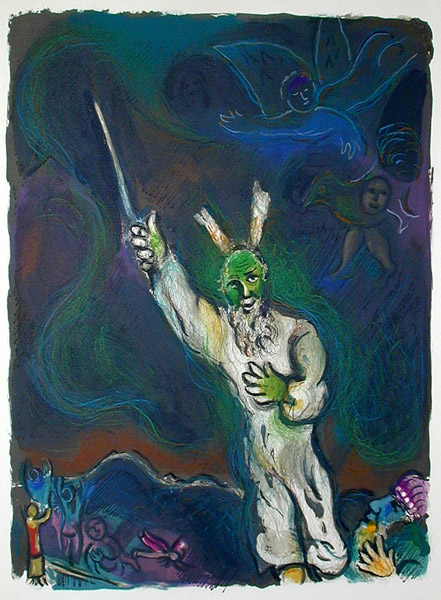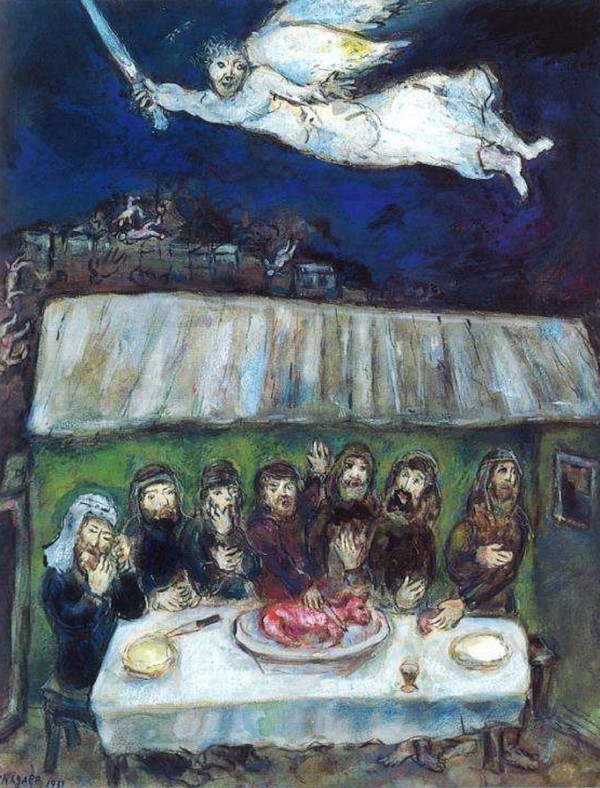Torah Study Date
Saturday, August 12, 2023
Verses Covered
Exodus (Sh’mot) 10:24-11:8
Next Session
Saturday, August 19, 2023
Starting at Exodus 11:9
Last week R. Sara noted that the claim that the Israelites enjoyed light in their houses and could move about really has wider signification because moshav (dwelling, location) is used rather than beit (house) which makes the claim that they had light and could move about in their locations.
We discussed Pharaoh saying the children could leave and only the cattle and oxen must stay behind, Moses rejecting that, and, in an affrontive manner, telling Pharoah, no, that he must provide animals for the Israelites to sacrifice to their god, YHVH. Pharaoh wanted the cattle and oxen to stay to ensure that the Israelites would come back, but Moses turns the table on him and says not only that they would not do it, but that Pharaoh must do something for them. Once again, as R. Sara has pointed out, we see smack talk in a battle of gods and their avatars, Moses the avatar for YHVH, and Pharaoh the avatar for Ra, the sun god. Moses, at this point, is winning his battle on behalf of YHVH.
We also noted Moses bending the truth by mentioning that they need flocks to sacrifice and not also mentioning that they need them to eat. We saw that Pharaoh once again strengthens or toughens Pharaoh’s heart (and noted that hazak is used here rather than kavod)—and does not want to send them off. We noted Pharaoh telling Moses to go away and not continue to see Pharaoh’s face because, on the day that he would see it, he would die. Presumably, Pharaoh says this because, once Moses says everything is going with him, Pharaoh has no more bargaining chips (even though he still will not send them off). Moses turns Pharaoh’s order on its head and says (roughly), that’s alright by me, not to see your face again, and so I will not. It’s as if, with no more options, Pharaoh says, get out of my face, and Moses replies, sarcastically, Happy to do so!
At this point, we discussed YHVH telling Moses about the final plague. After this one, Pharaoh will finally send the people off. Even more, he’ll drive them out from here, YHVH says. First, YHVH tells Moses to tell each man and each woman to ask their neighbor for silver and gold items. We discussed YHVH saying that Moses was very big in the Egyptians’ eyes—big because he was an Egyptian prince and, presumably, because he stood up to Pharaoh with remarkable natural feats—implying that because of him being big in their eyes, they would be willing to give the items. R. Sara mentioned that taking the gold and silver, which they knew they would keep, was similar to getting reparations. In addition, gold and silver would be useful for making things that the people would need.
Then, Moses tells the people that YHVH said he would go through Egypt and every firstborn there would die, from the firstborn (bechor) of Pharaoh on his throne to the firstborn of the maid behind the mill (using a merism that means from the highest to the lowest, in other words, everyone) as well as firstborn animals. We noted Moses saying YHVH said there would be a big cry in all Egypt but not a dog would move his tongue (that is, bark) at any of the Israelites (presumably to identify them in the hostile manner Egyptians thought dogs had as pointed out by Alter). Even the dogs are on the Israelites’ side! I mentioned the Egyptian dog god, Anubis, who was a messenger between this world and the underworld and we noted that the silence of the dogs indicates another victory in Moses’ battle against the Egyptian gods since dogs can be gods for Egyptians.
Finally, R. Sara commented that “God is saying to the marginalized, I am on your side.” In saying this, she brought our attention back to the fact that all these plagues, all this harshness, is to defend the Israelites who, after all, had been so sorely oppressed by the Egyptians for so long.
Our artwork this week is two lithographs by Russian-French Jewish artist, Marc Chagall (1887 – 1985 ), Moses Calls Darkness Upon Egypt (1931, above), and The Israelites Eat the Passover Lamb (1960, below).
Chagall says, “I have almost an impression of myself being somebody else, different from myself as I am. One can say that I was born between the Earth and the Skies, and the world as I see it – is a great desert in which my soul is wandering like a little flame.” He goes on, “If every life is inevitably moving to an end, then during our lifetime we should color our life with our own colors of love and hope. It is in love that any social logic of life, and the essence of any religion, are to be found.”
Could we see the painting below as a portrayal of the escaping, beleaguered Israelites as flames light up the dwelling in which they take sustenance while around them is the darkness of oppression?


